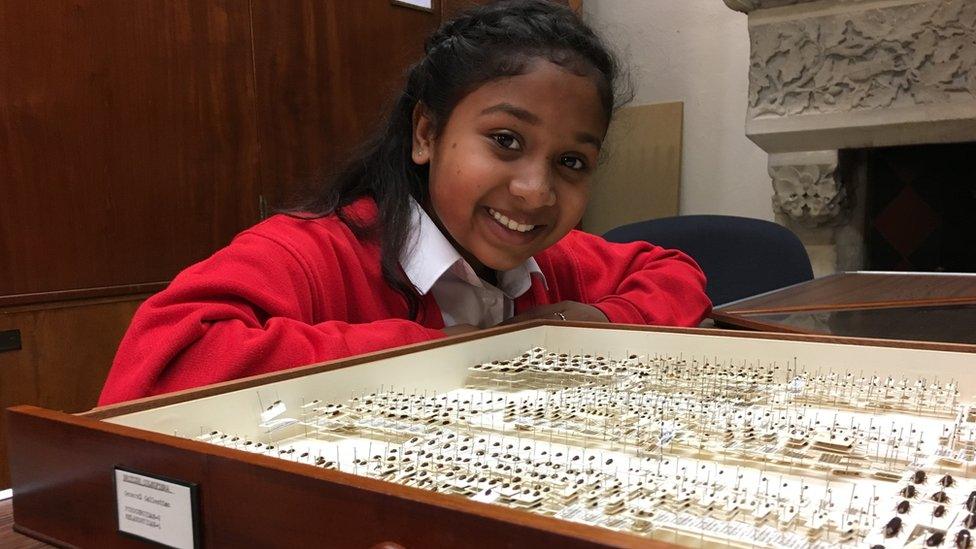Oxford museums train Syrian migrants as tour guides
- Published
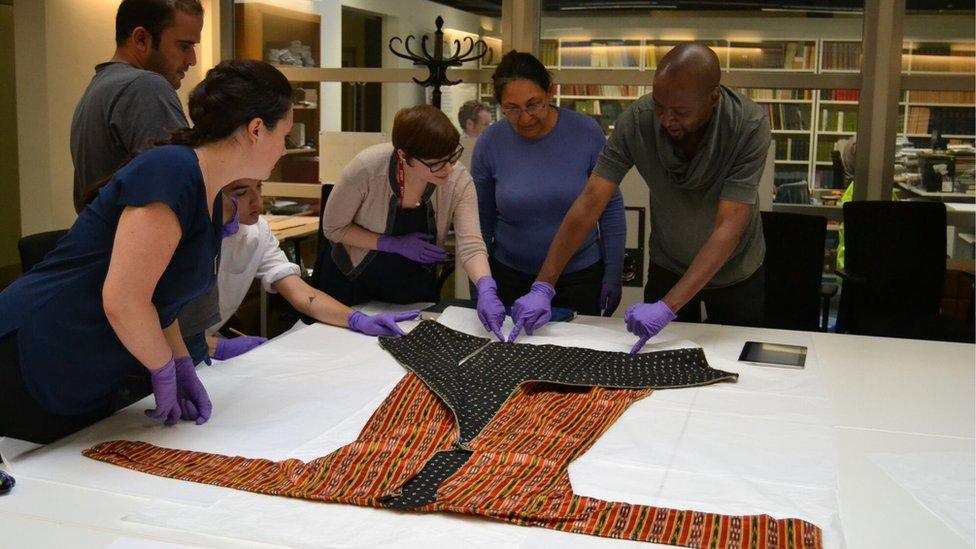
The volunteers are involved in the selection of objects for a textiles exhibition
Refugees from countries including Syria and Iraq have been given volunteering jobs as museum tour guides in Oxford.
The 26 volunteers will run guided tours at the Museum of the History of Science about its Islamic astronomical instruments.
From 2019 they will work on an exhibition about Arab textiles at the Pitt Rivers Museum.
Syrian Mohammad Al Awad, 38, described it as a chance to share his culture with people in the UK.
The project is part of a project called Multaka-Oxford, aiming to help volunteers - who also come from Egypt, Zimbabwe, Sudan and Oman - practise their English and gain work experience.
The first tours are at Oxford's Christmas Light Festival later.
Volunteers are involved in research, organising events, writing a project blog, external, and managing social media.
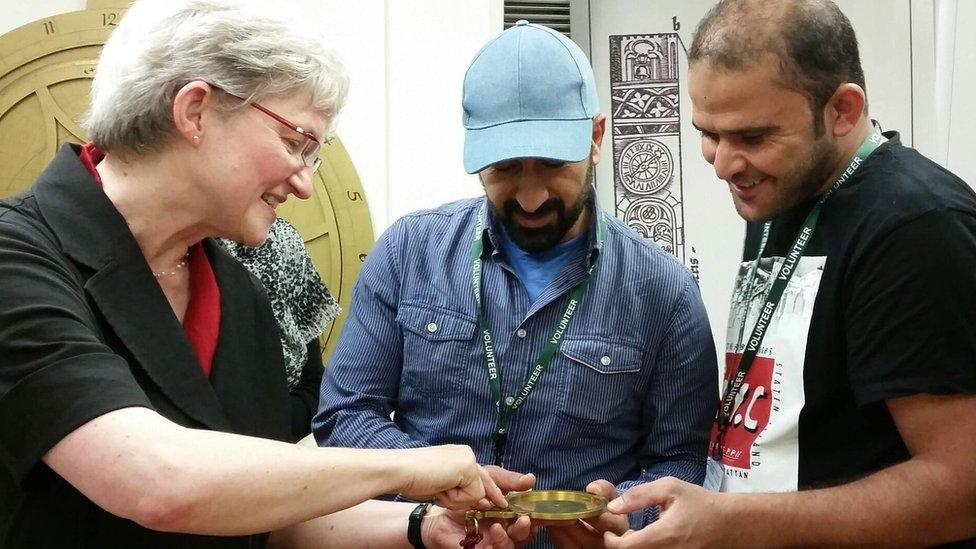
Islamic astronomical instruments will be shown at the Museum of the History of Science
Mr Awad has a masters in history and archaeology, and worked as a tour guide in Palmyra and Bosra.
He said: "We hope to return to Syria one day. We'll take experience from the UK, and teach our students at the University of Damascus how it was here.
"That we were happy, we learned, and we took our civilisation to other cultures."
Collections officer Rana Ibrahim, who came to the UK as a result of the Iraq War in 2003, said the initiative was "building bridges between two cultures".
She added: "It makes these collections more accessible because the objects have the Arabic language on them.
"The volunteers can read it and give us a new explanation, which can make it more interesting to visitors."
Project manager Nicola Bird said: "The project not only offers practical support such as on-the-job training, but also personal support such as providing a sense of inclusion."
It is funded by the Esmée Fairbairn Collections Fund, in partnership with Asylum Welcome, Connection Support and Refugee Resource.
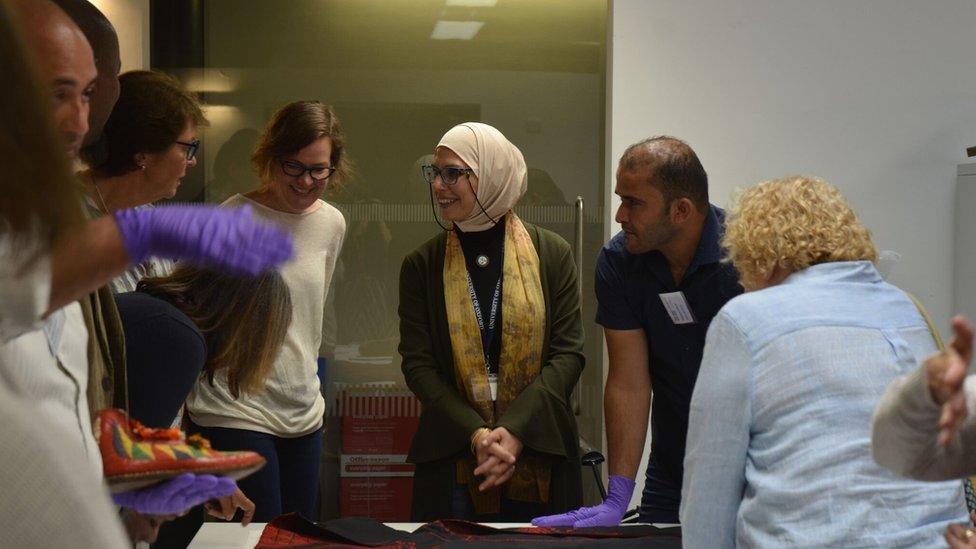
Rana Ibrahim (centre) said the project was "building bridges between two cultures"
- Published26 October 2018
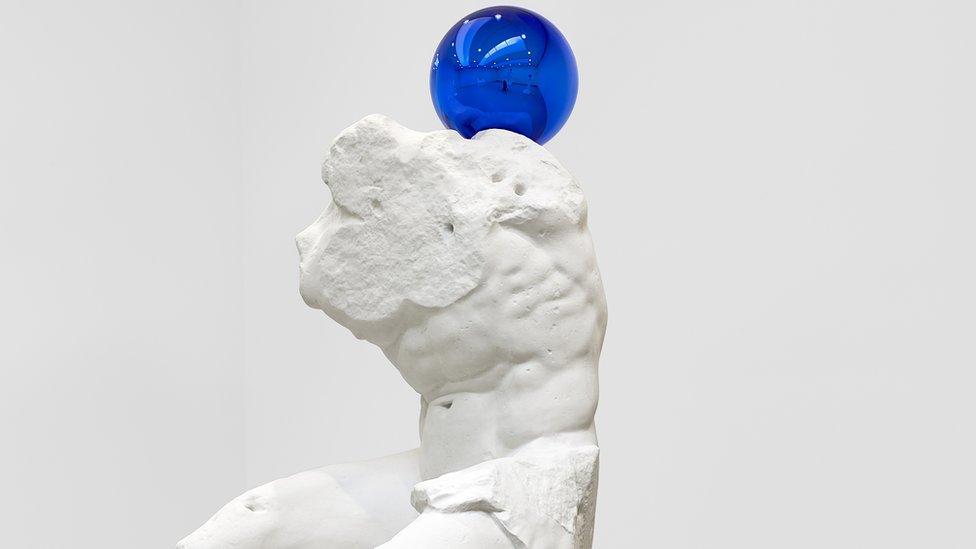
- Published7 August 2018
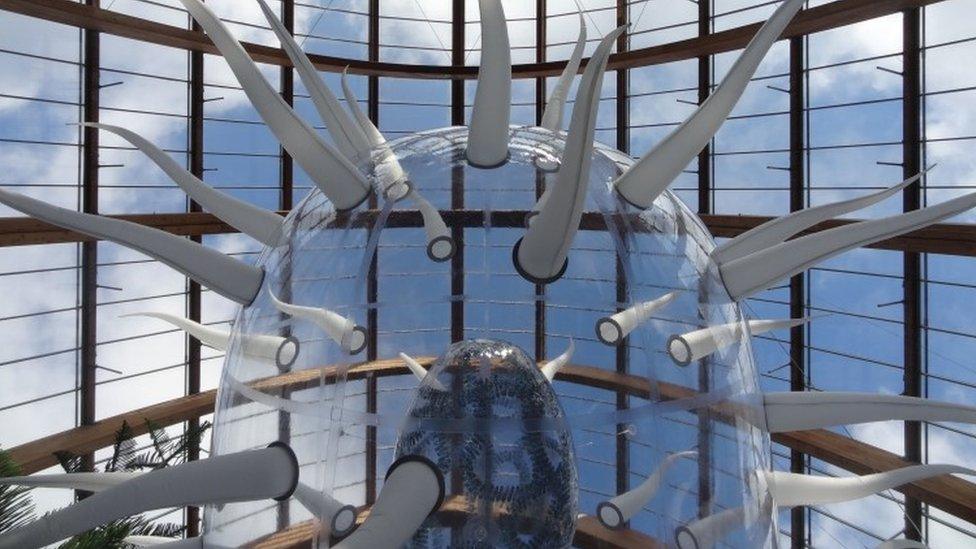
- Published24 July 2018
